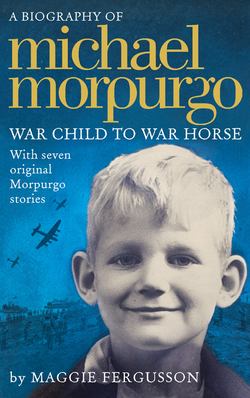Читать книгу Michael Morpurgo: War Child to War Horse - Maggie Fergusson, Maggie Fergusson - Страница 10
Pieter Cammaerts.
ОглавлениеFor Kippe, relief that the war might soon be over was mixed with apprehension. Since Tony had left for Abadan she had lived in a state of limbo, real life temporarily suspended. Now she was beset by anxieties. What would her husband do when he came home, and how would he provide for her and the boys? Where would they live? Would the Cammaerts family ever learn to respect him? And, more unsettling, did she respect him herself?
At the Eyrie, childhood rivalries and insecurities had continued to fester, and Tony Bridge had become a source of embarrassment to his young wife. His army career was unspectacular. Flat-footed and rather short-sighted, he had not been commissioned as an infantry officer, and had instead been enlisted into the Pioneer Corps – a blow to Kippe’s pride. His letters home were few and dull, much taken up with complaints about the oppressive Persian heat and his troublesome eczema. Just before Pieter’s death, Kippe’s sister Elizabeth had married an officer serving on the North-West Frontier. Jeanne, meanwhile, was engaged to an officer in the 16th Durham Light Infantry. The letters Elizabeth and Jeanne received were frequent, vivid and entertaining, and they delighted in reading them aloud in the nursery at the Eyrie, reawakening in Kippe the feelings of inadequacy and failure that she had suffered as a child.
Yet all might have been well if, as planned, Tony Bridge had returned home in the summer of 1945. Instead, at short notice, his Iranian posting was prolonged, and just when – as Emile Cammaerts later put it – Kippe was ‘keyed up’ to welcome him back, and ‘worn out by the preparations she had made to receive him and by a series of delays and disappointments’, Jeanne’s fiancé, Geoffrey Lindley, visited the Eyrie with an army friend, Jack Morpurgo.
The visit took place on 27 September 1945, and that morning Michael had spoken his first full sentence. Of Kippe’s first impressions of Jack, there is no record; but nearly half a century on Jack’s memories were vivid. ‘The door opened,’ he wrote, ‘and a girl came in carrying a laden tea-tray. It was unmistakably an entrance; all conversation was silenced … All my attention was centred on that tall, slim figure, its every movement a delicious conspiracy between art and nature.’ Here was a treasure, he reflected, ‘who would outshine all else in my collection’.
He knew that she was married, but on the train back to St Pancras that evening Jack Morpurgo comforted himself that ‘a girl as precious as Kippe had no need to waste her loveliness on the Pioneer Corps’.
Jack Morpurgo had all the qualities that Tony Bridge hadn’t. He was good-looking, witty and glamorous. ‘Confidence I never lacked,’ he admits in his 1990 autobiography, Master of None.
Born to working-class parents in the East End of London, thoroughly indulged by two adoring elder sisters and precociously clever, Jack had, at thirteen, won a scholarship to Christ’s Hospital, a school founded by Edward VI for poor children. From that moment on, he was relentlessly determined to better himself.
In November 1945 Kippe caught the train up to London and she and Jack spent the evening alone together. By the end of the year they were engaged in what Jack later described as a game of ‘Let’s pretend’ – ‘but we were not children, we were in love’.
Eventually Kippe wrote a letter to Tony, admitting her affair with Jack. On receiving it, Tony was granted compassionate leave. He made a painful progress back to England – Basra to Baghdad, Baghdad to Tel Aviv, Tel Aviv to Cairo, Cairo to Alexandria, across the Mediterranean to France, and, finally, by steamer into Newhaven. On Friday 1 February 1946 he and Kippe were reunited at the Rembrandt Hotel in Knightsbridge.
